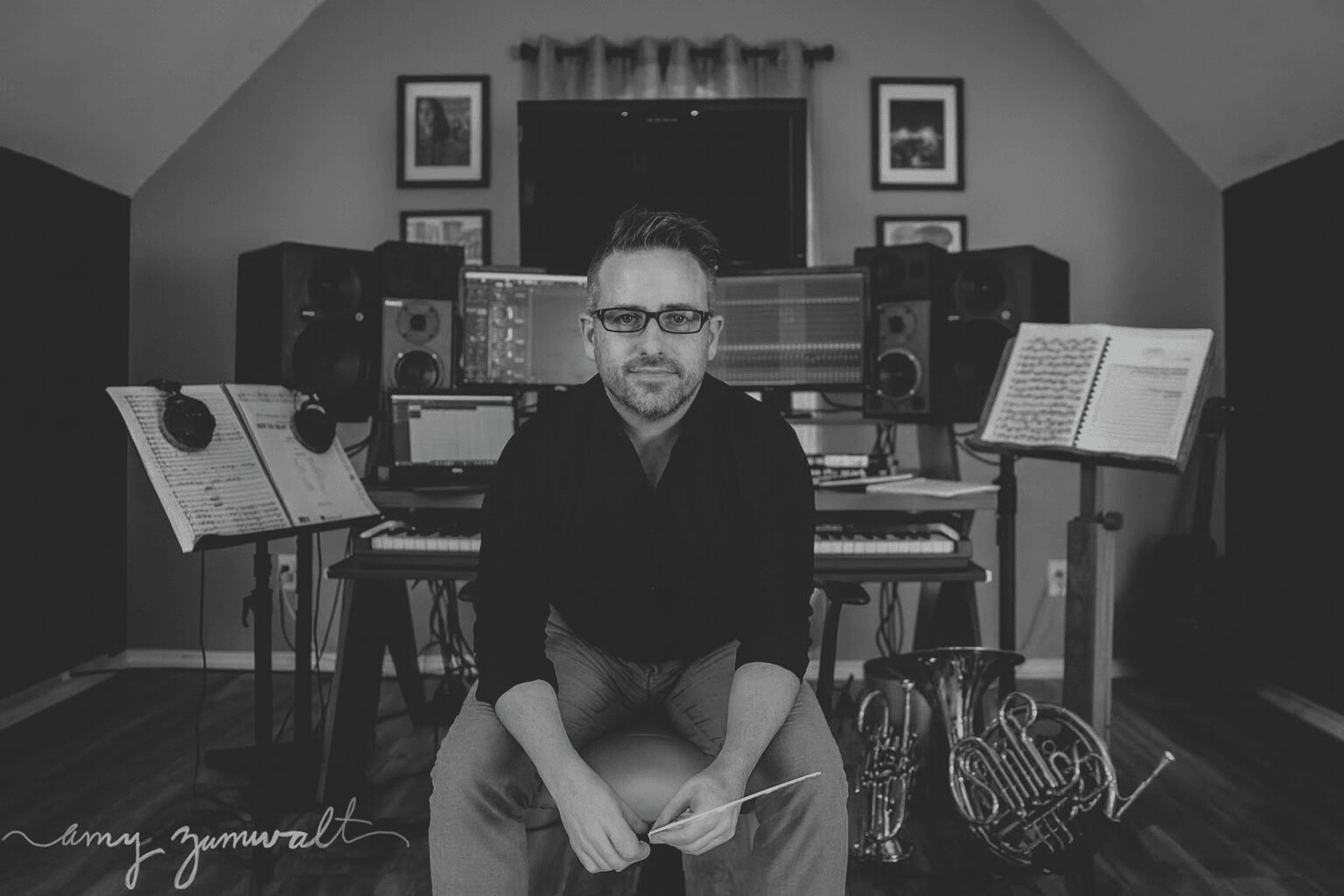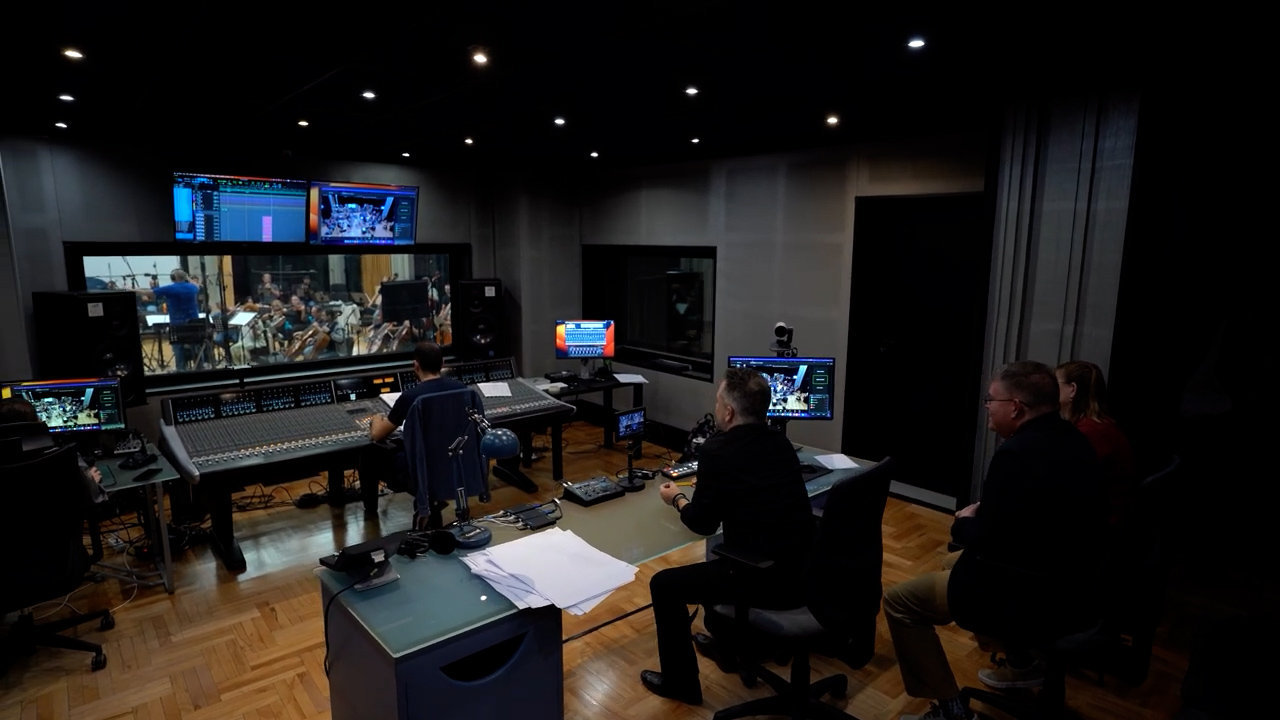

Ray Sharp shared their story and experiences with us recently and you can find our conversation below.
Ray, we’re thrilled to have you with us today. Before we jump into your intro and the heart of the interview, let’s start with a bit of an ice breaker: What are you being called to do now, that you may have been afraid of before?
Composing the orchestral score for a full-length film.
Can you briefly introduce yourself and share what makes you or your brand unique?
My name is Ray Sharp, and I’m a composer, pianist, and multimedia creative based in the Dallas–Fort Worth area. I specialize in creating cinematic orchestral music for film and television, blending traditional symphonic writing with modern production techniques. What makes my work unique is that I not only compose emotionally resonant scores, but I also deliver them in full 5.1 surround sound, ready for the big screen — something few independent composers provide.
My journey has taken me from performing live with the Four Day Weekend comedy troupe to scoring award-winning films like The Stones Are Speaking (which won “Best Music” at the Archaeology Channel International Film Festival). More recently, I scored the feature-length mystery sci-fi film Matter of Time, which premiered in spring of 2025, and I’m currently composing the score for the documentary Voice of Valor. Alongside these projects, I’m developing educational resources for composers, such as my Home Studio Creation course, and I continue to collaborate with filmmakers across the U.S. and internationally. At the heart of it all, I’m passionate about telling stories through music — helping directors and producers elevate their films with scores that feel both cinematic and deeply human.
Thanks for sharing that. Would love to go back in time and hear about how your past might have impacted who you are today. Who taught you the most about work?
The people who have taught me the most about work are David Wilk, David Ahearn, Frank Ford, Oliver Tull, and Josh Roberts — all members of the comedy troupe Four Day Weekend, where I’ve performed for years. Together we’ve shared over 9,000 shows, and the bond we’ve built is truly unparalleled. Each of them has shaped not only how I approach performance, but also how I carry myself as a professional.
David Wilk taught me that nerves are a good thing — they mean you care.
David Ahearn showed me the power of kindness, even to complete strangers.
Frank Ford instilled in me passion and the importance of really going for it.
Oliver Tull emphasized the value of broad knowledge and stage presence.
Josh Roberts taught me flexibility as an accompanist, especially the importance of letting singers lead and supporting them.
Their mentorship has not only made me a stronger musician and performer but also a better collaborator and storyteller.
Was there ever a time you almost gave up?
Yes — in my late 20s I faced serious struggles with alcohol and drugs, and there was a point where I nearly gave up on myself and my career. Everything changed when I read a film script entitled RUN by David Ahearn. I put the script down and made the decision to turn my life around. I discovered that exercise could be a powerful way to overcome addiction — replacing a destructive habit with a healthy one.
Through that process, I got into the best shape of my life, and along the way I met my first wife and we had our daughter, Aria. That season of transformation not only gave me back my health but also gave me a family and a renewed sense of purpose. It was a true turning point, and I’ve never looked back.
Next, maybe we can discuss some of your foundational philosophies and views? What are the biggest lies your industry tells itself?
One of the biggest lies my industry tells itself is that you need some sort of substance to be creative. I’ve learned firsthand that this simply isn’t true. Today, I’m clean and sober and writing the most mature, inspired music of my career. My creativity comes from reflection, discipline, and a deliberate approach to crafting melodies and textures — not from shortcuts or unhealthy habits. In fact, sobriety has allowed me to go deeper, to be more intentional, and to consistently deliver work that truly serves the story.
Okay, so let’s keep going with one more question that means a lot to us: What do you think people will most misunderstand about your legacy?
I think the biggest misunderstanding about my legacy will be that some people may see me only as a pianist, when in truth the piano is just my tool — not my identity. I am, at my core, a composer. I use the piano to shape ideas, but my true aim is to create music that feels new, that excites the ear, and that transports the listener to places they’ve never been before. For me, creativity is king, and I hope my work is remembered for its originality and imagination rather than being confined to a single instrument.
Contact Info:
- Website: https://www.raysharp.com
- Instagram: raysharpproductions
- Linkedin: https://www.linkedin.com/in/ray-sharp-24922876/
- Youtube: pianojunkie99

Image Credits
Amy Zumwalt










